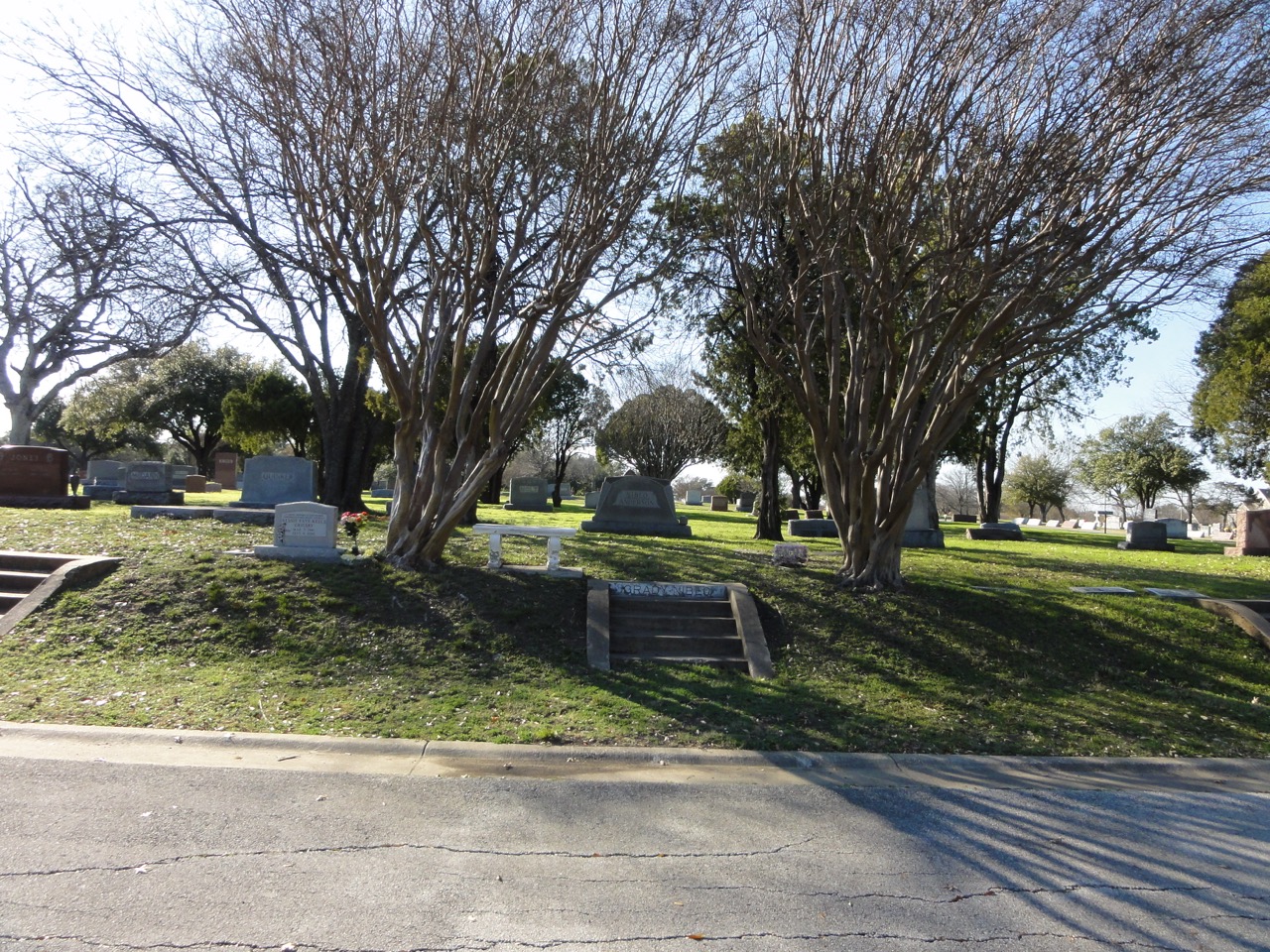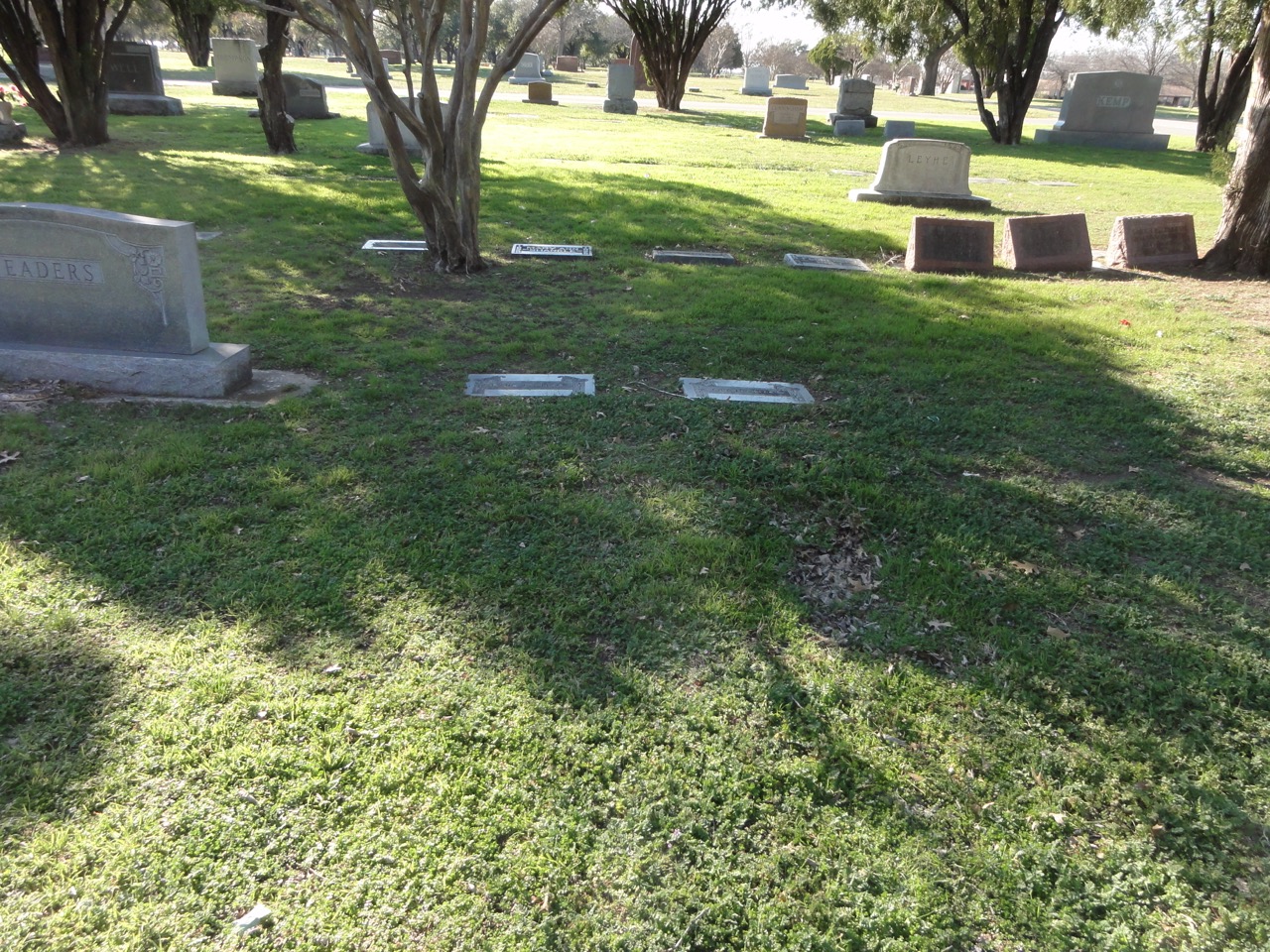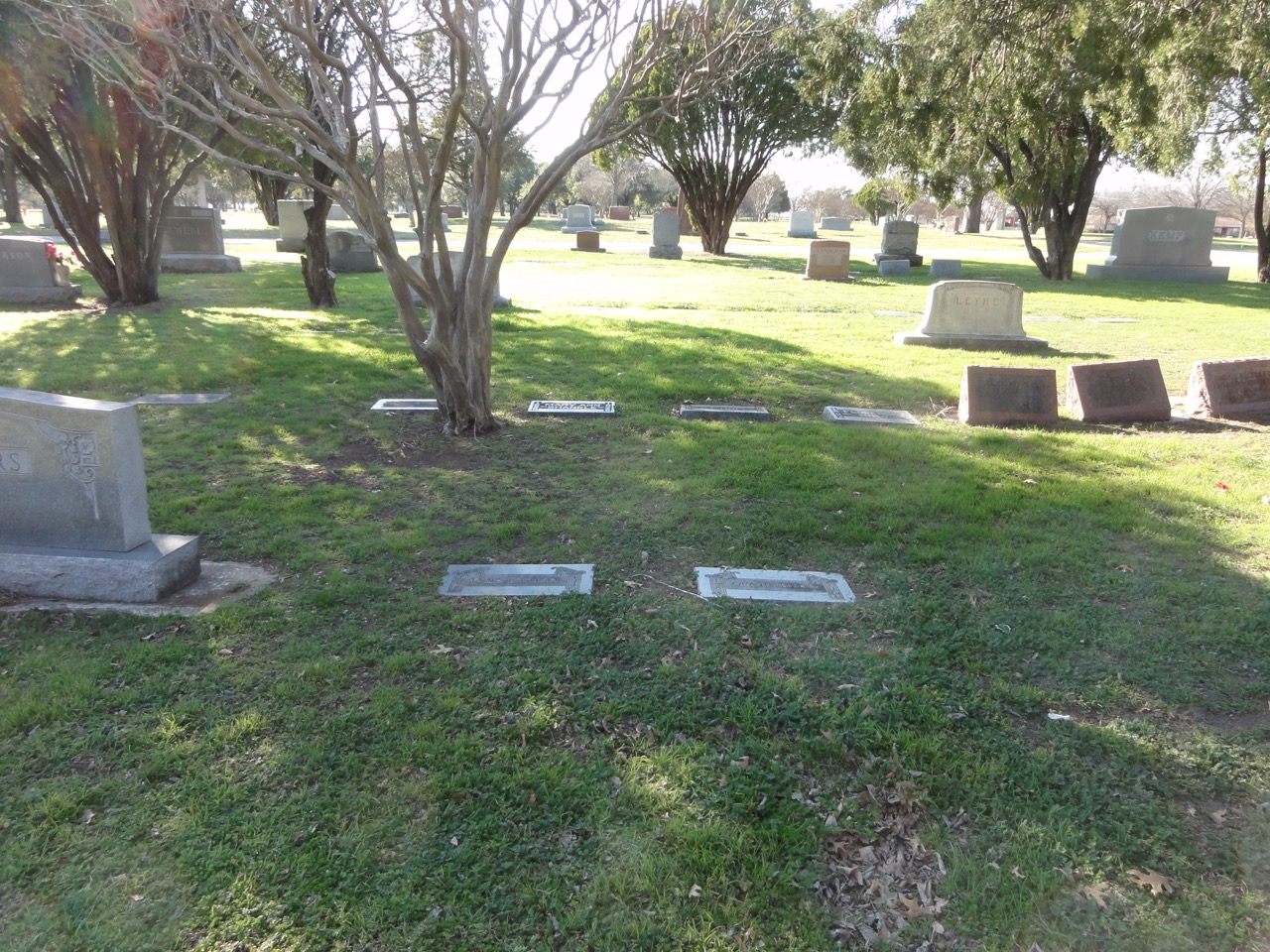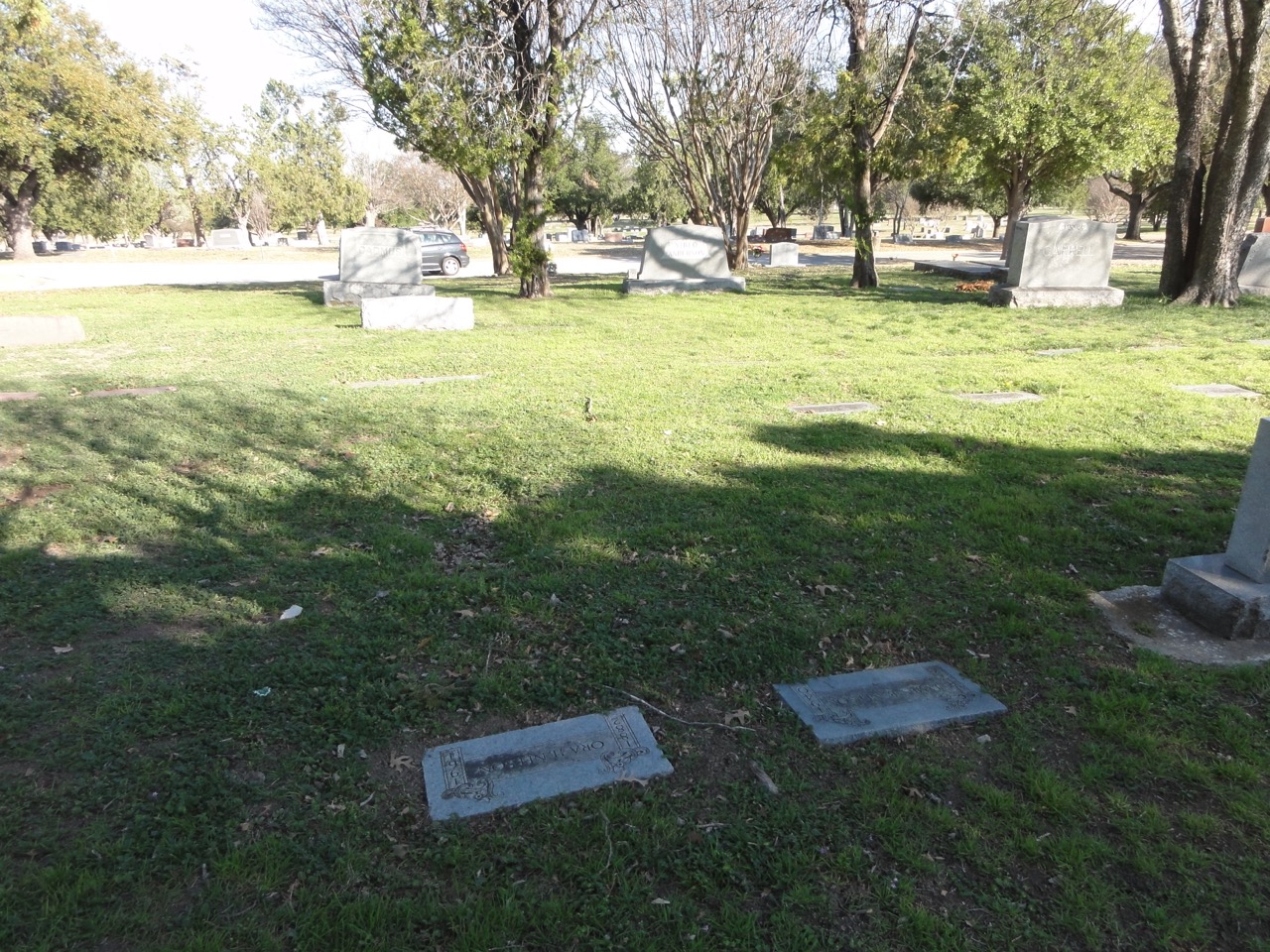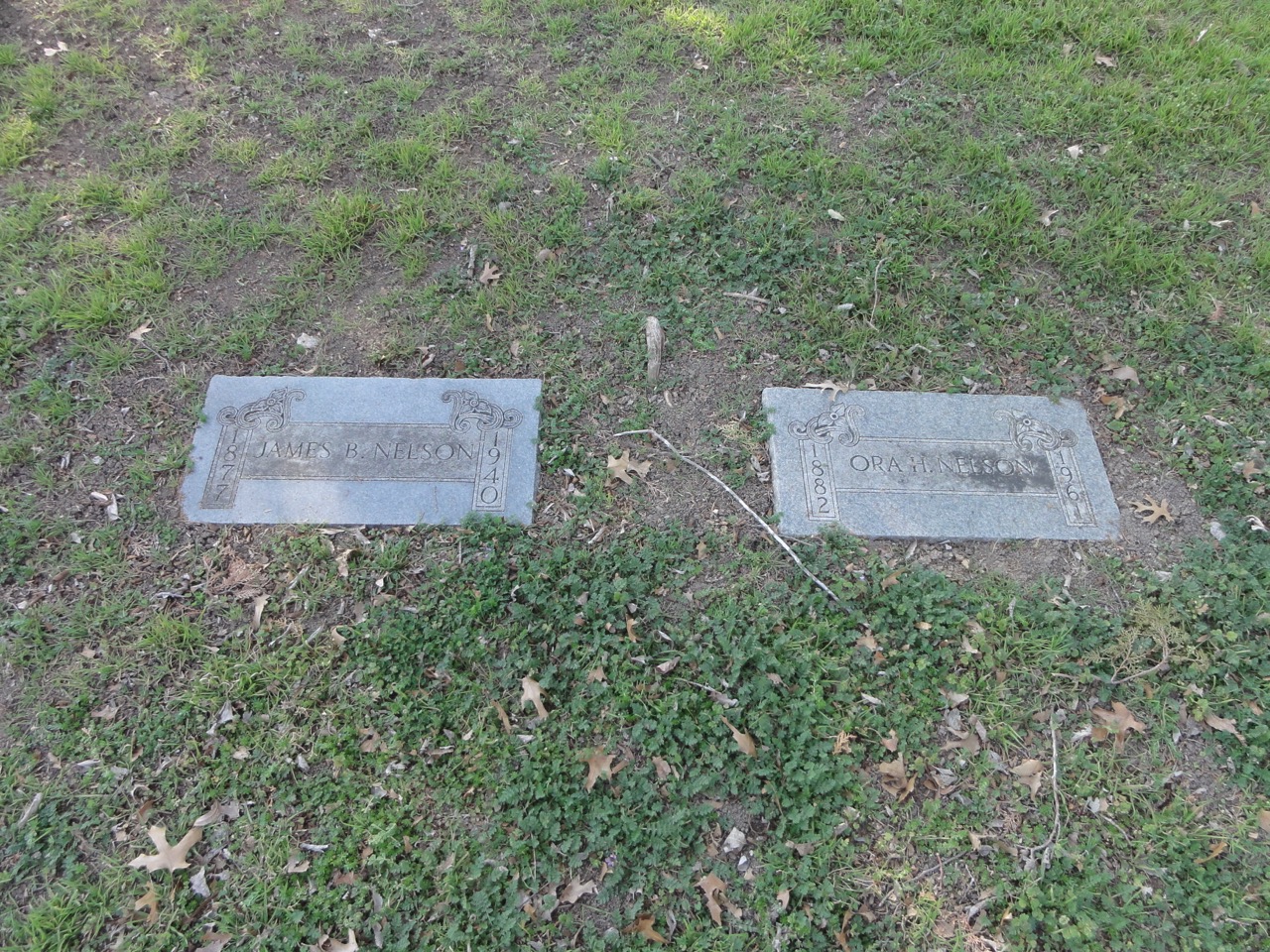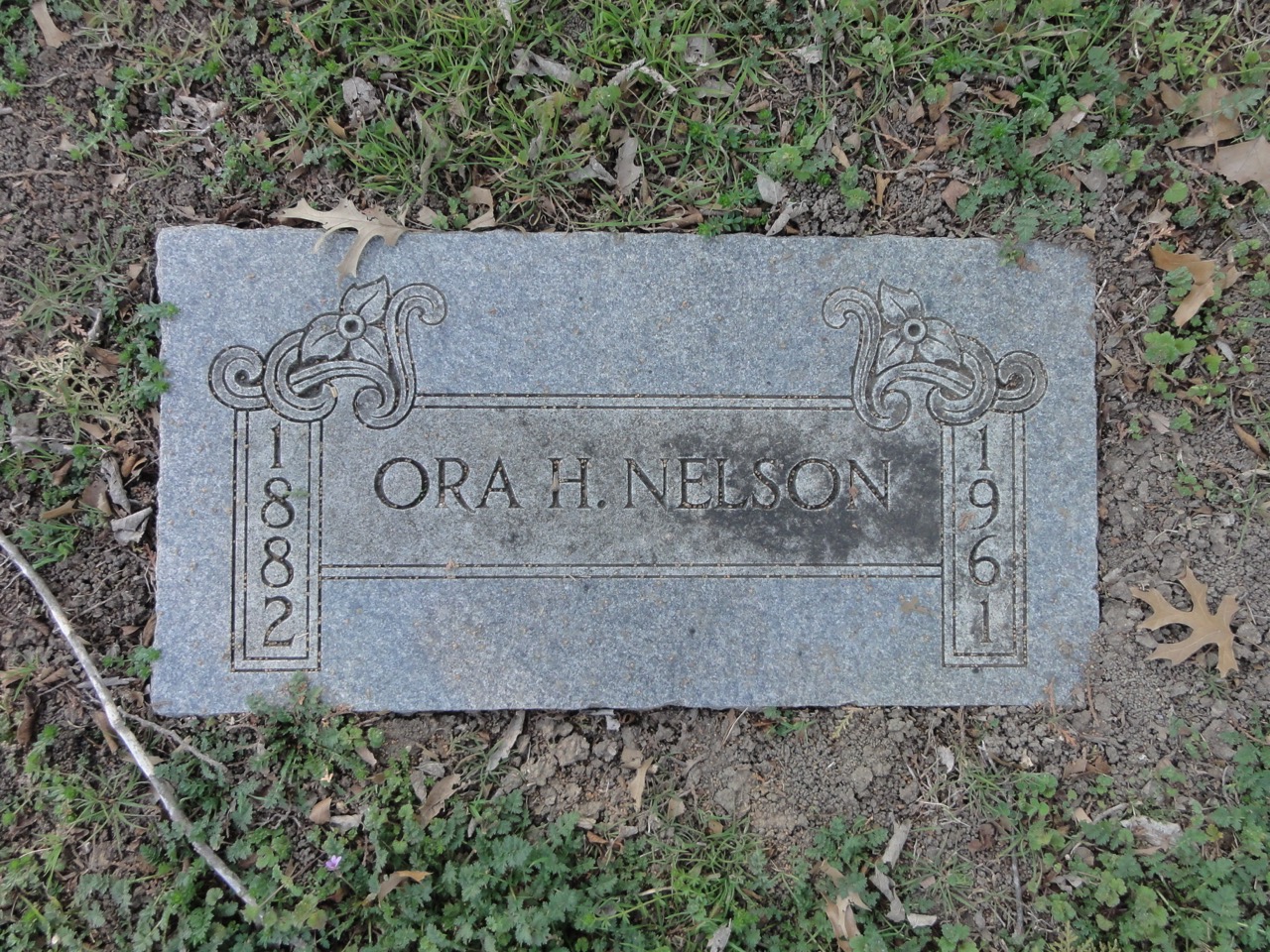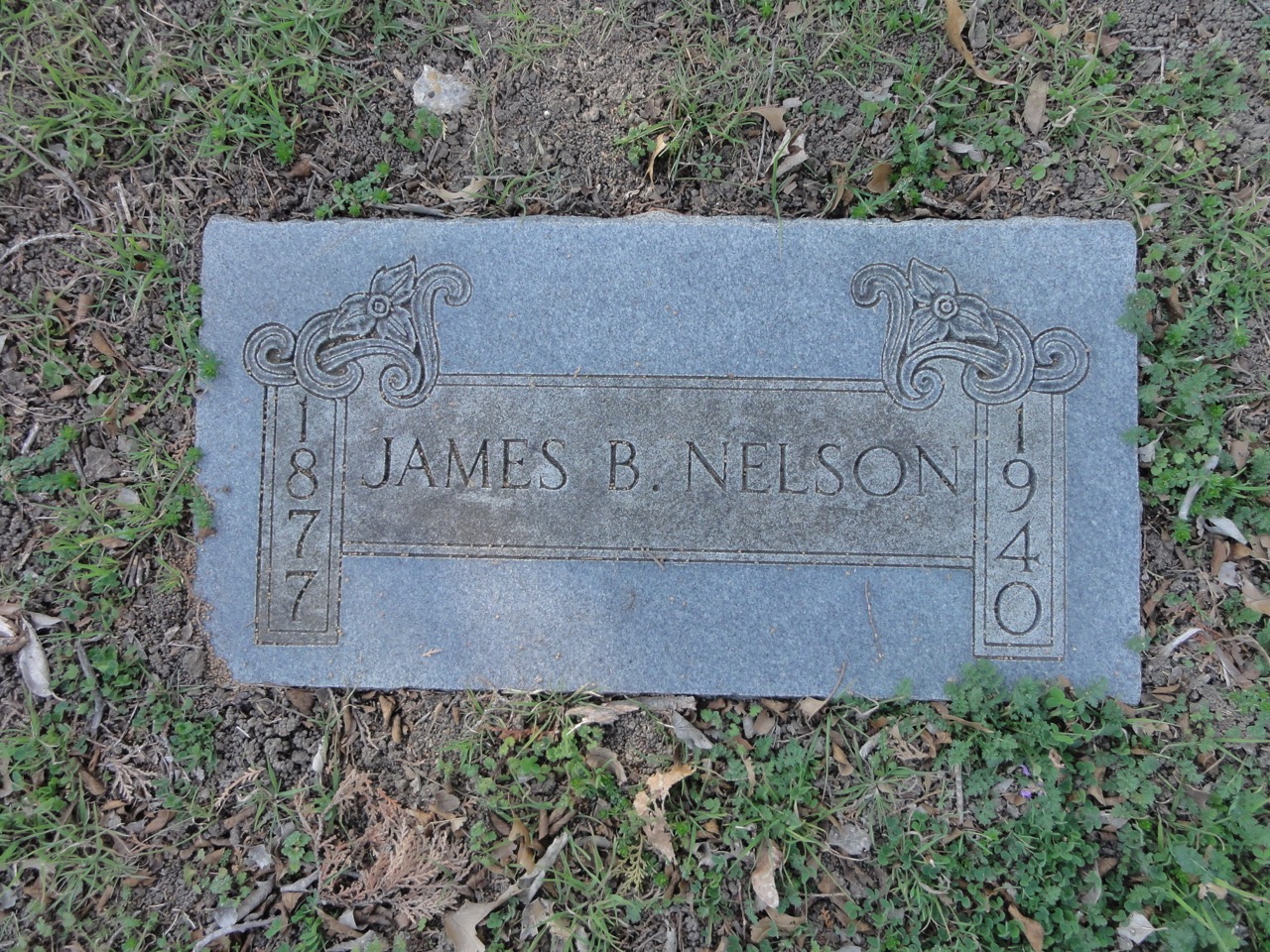James Bridges Nelson
1877-1940
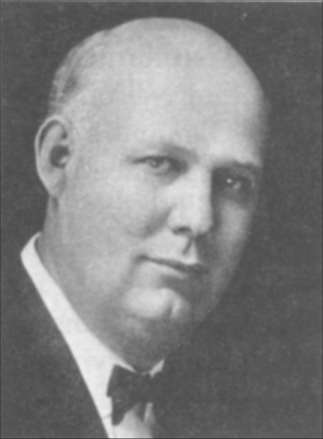
J.B. Nelson Is Killed By Train, G.A. Article 1
Will Be Greatly Missed, G.A. Article 2
A Great Loss To The Church, G.A. Article 3
Directions To The Grave Of J.B. Nelson
Biographical Sketch On The Life Of J.B. Nelson
James Bridges Nelson was born in the same cedar-log cabin in which his father had been born near Readyville, Tennessee April 11, 1877 of J.S. and Mollie Nelson, a farm couple. In addition to J.B., they had eight other sons and two daughters. Later in life they lived at Murfreesboro, Tennessee. J.B. attended the available public schools until he was twelve years old, spent about five years working in a drug store in Chattanooga and then attended the Readyville College for two years from which he received a first grade certificate. After a period of teaching school and preaching in Mississippi, he attended Nashville Bible School, now David Lipscomb College, enrolling there in 1899. In the winter of 1900 he entered the Dawson Institute at Dawson, Texas. This is the first account we find of him being in Texas.
In March, 1898 his cousin, Gus A. Dunn, secured a teaching position for him in Mississippi. When he arrived to begin teaching, he found that someone had made an appointment for him to preach. Evidently he did, for the next July he gave up his teaching work and began to give his time to preaching The Word, which was his "calling" for the rest of his life. Before going to Texas in 1900 he spent some time in Mississippi conducting gospel meetings. In 1901 he went to Greer County in Southwestern Oklahoma. He remained here for about four years, preaching in dug-outs, brush arbors, school houses, or just any place he could where the people could meet. About a third of a century after that, I was preaching in Greer County and there was a congregation in every town and in most of the school houses. While in Greer County he became acquainted with Miss Ora Holt, daughter of the D. S. Holt who were faithful Christians. On May 12, 1903 he was married to Miss Ora in Mangum, by L. A. Sweet, father of the lamented R. B. Sweet. Brother Sweet had gone to Greer County in 1891. Two children were born to them, and both of them are now dead. Their son, Dr. D. Lloyd Nelson died in California only a few months ago. Throughout life he was active in The Church, preaching some and serving for many years as an elder in The Church. He was Chairman of the Board of Regents of Pepperdine University and "Distinguished Professor Emeritus" of the University of Southern California.
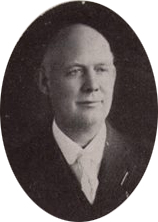
Brother Nelson did much "local work," with the first being in Altus, Oklahoma about 1904. Throughout his life he conducted many gospel meetings, baptizing many people. The creeks, ponds, stock tanks, etc. usually served as "baptistry" in those early years. His work took him into many states, including Florida, where he did "mission" work for a time. Other places where he did "local work" were: Grandview, Paris, Dallas (now Western Heights), Waxahachie, Irving, Dallas (Pearl and Bryan), all in Texas. He also worked at one period for the Church in Corpus Christi. Evangelistic meetings played an important part in the work of The Church in those years, and all preachers engaged in them. Dr. D. Lloyd Nelson, his only son, wrote about going with him to many of these meetings, and mentioned meetings in Ozona, Granger, Nolanville, Corpus Christi and several other places. At a time when preachers were often poorly supported, he was able to support his family without ever "making tents." He also made a practice of holding one mission meeting each year, in "prime time" ... a meeting for which he received no support. (Wonder how many of "the brethren" made a like contribution in those years?) About 1910 he and Sister Nelson taught in the Berry, Alabama Christian College with Gus Dunn, Sr. He was a cousin of the "Dunn boys," was always close to them and felt that they had contributed much to his work as a gospel preacher.
His wife who was better educated than he, was much help to him in his preaching, helping with the preparation of sermons, his grammar, and in all the things a faithful preacher's wife can do in the work of The Church. She is described as a "very devoted wife" and their son said: "I feel quite sure they never had a fuss or quarrel." Brethren, in writing about him and his work after his death, often mentioned her and the very important role she filled in his life. Following his death, she was appointed to serve as Superintendent of the Boles Home, where he had been serving. She continued in this work for about two years.
Brother Nelson lived in a time when every inch of ground "we" gained was gained by continual engagement of the forces of denominationalism in debates and other ways whereby error and Truth were contrasted. Brother Nelson engaged in a number of debates with the forces of error, including one debate with an advocate of "Bolism" right in our own midst. He also used the pen to advance The Lord's cause, often writing in the Firm Foundation, and through that paper he published some "Bible Lessons" and a booklet on the use of instrumental music in the worship. If any of this material is still available perhaps it could be had from the Firm Foundation. He was a "man of The Book," having committed to memory at least two-thirds of the New Testament and a large portion of the Old Testament. He continually quoted scripture in his sermons, seldom using less than thirty or thirty-five passages in a sermon. He developed a reputation for being a good man to have around in time of church trouble, and so was often called to help brethren with such problems.
Dates are a little hard to pin down in this story, but he went from the Pearl and Bryan St. church in Dallas to the Boles Home, according to the best information I have been able to gather. He remained at Boles until the end of his life. While there he and Sister Nelson endeared themselves to the children, and to the brotherhood who knew of their great work there. On Wednesday, April 24th, 1940 he took a load of children in his car to Greenville, a few miles North of Quinlan, where the Home is located, to present a program for the Rotary Club. He left those children there and went back to the Home to get another load. The Greenville Rotary Club had been very helpful to the home and a close tie had developed between the two. On the trip for the rest of the children, he collided with a passenger train in Greenville. He was taken to a Greenville hospital, but died on Friday, April 26, at the comparatively young age of sixty-three. Services were conducted at The Home the following day at 1 p.m. by Mr. C. Franklin and V.E. Howard. At four that afternoon another service was conducted in the Pearl and Bryan meeting house in Dallas by Foy E. Wallace, Sr. He and Brother Wallace had had an agreement for many years that the survivor would conduct the funeral service for the other. It had been planned to have L.S. White in the service, but he was in Nashville, Tennessee in a meeting and could not be there. Twenty-one years later, on December 13, 1961 Sister Nelson followed him into "that better land." They "sleep" in Laurel Land in Dallas.
The June, 1940 issue of the Boles Home paper was dedicated to his memory. It carried a good portrait of him on the front page and articles from some twenty-five or thirty different ones about him. Many spoke of their personal feeling for him as a true friend and brother. His clean life, personal integrity, great ability as a gospel preacher and as a businessman were mentioned by many. One man mentioned having entrusted him once with a large sum of money, and said that he would gladly entrust him with everything he owned. Many of them spoke of him as a man they "deeply loved." His kindness to people, especially children, was often mentioned. His faithfulness to The Book in his life and preaching predominated in the things said about him.
There is no way to evaluate the life of such men. Only eternity can reveal the vast amount of good done by such a one, but his influence does continue to live. Just yesterday, at the Dallas weekly preacher's luncheon I asked if any of them had known Brother Nelson. Several, including Tillit S. Teddlie, John H. Banister, and Hulen L. Jackson had known him. Though forty years have passed, they spoke of him in the highest terms. Truly, he was a great and faithful soldier of The Cross. Among the thousands he influenced to live for The Lord many remain, and so does his influence.
"Blessed are the dead who die in the Lord...." Revelation 14:13
-From Gospel Preachers Of Yesteryear, by Loyd L. Smith, pages 249-252 Originally appearing in The Christian Worker, September, 1980
J.B. Nelson Is Killed By Train
On Wednesday, April 24, J. B. Nelson, superintendent of Boles Orphan Home, was fatally injured when the car in which he was riding was hit by a Cotton Belt passenger train at the Wesley Street crossing in Greenville, Texas. He lived for one or more days (the information sent the Gospel Advocate contains no dates). Word was received by the Advocate on the day of the accident, but last week's paper was already printed. Full details (except dates) were received this week, but it was too late to be carried in this issue. Boles Orphan Home is located fourteen miles from Greenville. Brother Nelson was alone in his car when the accident occurred, but was on his way back to the home to bring some of the boys and girls of the home to Greenville for a musical program at the Rotary Club. A fuller account will be given later.
-Gospel Advocate 1940, page 429
Will Be Greatly Missed
Greenville, Texas
J.B. Nelson will be missed so much here. He was honored and respected by the entire citizenship of Greenville. Everyone appreciated so much his accomplishments at Boles Home. He made his regular visits to town every week, often many times during the week.
Brother Nelson met with death while on one of his regular visits in Greenville. Brother Nelson told me that he never knew what happened, suggesting that he never saw or heard a train. He also expressed himself as being glad that he did not have any of his "family," including the boys and girls of the home, with him.
Brother Nelson was loved and appreciated by everyone. He was doing a great work at Boles Home. He was an efficient and capable business manager, and, with his good wife, had developed a spiritual atmosphere within the home that always attracted attention and appreciation.
Indeed, we shall miss Brother Nelson here. He had given me much encouragement in my efforts to assist in the work of the church in Greenville as minister of the Johnson Street Church, with which he formerly labored. I appreciated his confidence in me and enjoyed so much his friendship and brotherly love since having come to Greenville last summer.
Together with Sister Nelson and Lloyd, Gus Dunn, and a brother-in-law and sister-in-law, I saw Brother Nelson during his last minutes as his spirit slowly and peacefully took its flight to fairer regions of eternal bliss.
I have assisted in many funeral services, but I cannot recall any occasion where it was more difficult to speak. Other than the loss of a friend and brother in Christ and sympathy for Sister Nelson and Lloyd, it was hard to witness more than two hundred boys and girls, from the smallest to the largest and oldest, whose hearts were broken and bleeding. Truly, all the boys and girls loved Brother Nelson as a father. Our profound sympathy is for all.
-Gospel Advocate, May 30, 1940 page 524, 525
A Great Loss To The Church
The cause of Christ in Texas and elsewhere has sustained a heavy loss in the death of J.B. Nelson. I have known him intimately for forty years. He was a fine preacher and teacher of the word of God, and was one of the purest and best men that I have ever known. I doubt if Boles Home can find a man that can take his place. Surely god will take car of him. Surely his reward will be a home with God where suffering cannot be.
Sister Nelson has gone through many deeps sorrows because of the death of loved ones in the last few years, but God has blessed her with a fine mind and a strong faith in him and a courage that will not fail. She is a great woman and will go on.
A very large gathering of friends-many of them preachers-gathered at the pearl and Bryan Streets meetinghouse, in Dallas, where Brother Nelson labored for many years, to attend the last rite for him.
-Gospel Advocate June 20, 1940, page. 587
Directions To The Grave Of J.B. Nelson
James Bridges Nelson is buried in the Laurel Land Cemetery in Dallas, Texas. Just south of Dallas on East I-35 take the Laureland Exit 420. and travel east. From the exit you should be able to see the cemetery as it is adjacent to the east side of the freeway. Enter the cemetery, and go past the funeral home into the cemetery itself. Go to Section 11. (Note Sect. 11 is in two parts. Be sure to go to the south section.) From the east side of Section 11 look for the 3rd stairwell from the North Corner. Up the stairs look for the Niblo/Anderson monument. Walk behind that monument about four sections, an to the right of the Meaders monument. See map below for directions in the cemetery. The little red dot shows where the grave is located. (The cemetery phone number is 214-371-1336. Address: 6000 SRL Thornton Fwy. Dallas, Texas.) See Cemetery Map Here.
GPS Coordinates
32°40'27.3"N 96°48'45.8"W
or D.d. 32.674242, -96.812732
Section 11, Lot 80, Space 4
Photos in 2015
While At Laurel Land Cemetery See The Graves Of Other Gospel Preachers
Listed Here
![]()
